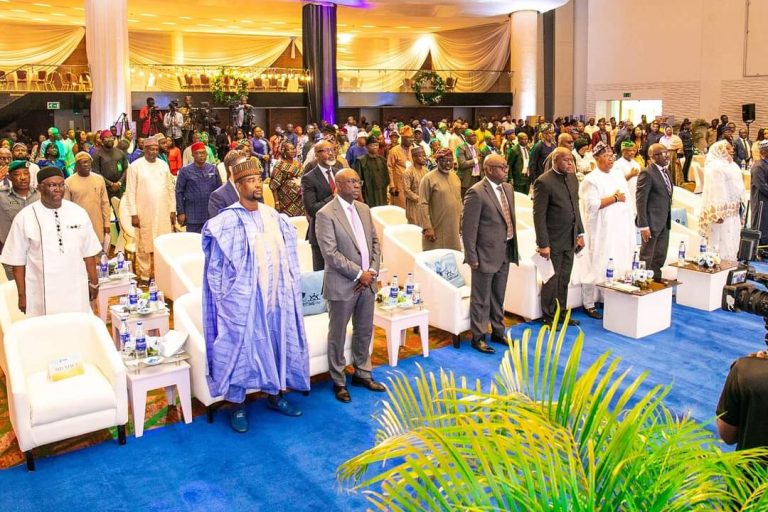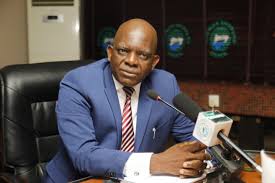
As she has done for many years, Nigeria also last week joined the rest of the world to celebrate this year’s World Maritime Day.
The Day is an annual celebration that was initiated by the United Nations in collaboration with the International Maritime Organisation (IMO). The day is usually set aside globally to celebrate the contributions of the maritime industry to the world’s economy.
The IMO has been responsible for choosing the World Maritime Day theme every year.
It is a fact that, without international transportation of goods which is facilitated by those in the maritime industry, the world’s economy would be unable to function. This is a fact which is either overlooked by many or they are unaware of. The World Maritime Day is explicitly organized annually to help address this issue.
This year, the IMO is drawing attention to safety. The theme is: “Navigating the Future: Safety First”
This year’s theme is apt, essentially because safety is a fundamental prerequisite for achieving a robust and business-friendly maritime sector.
We recall that in 2020, Nigeria had joined the rest of the world to celebrate the World Maritime Day, with the theme: “Sustainable Shipping for Sustainable Future”. In 2021, the IMO dwelt on seafarers with the theme – “Seafarers: At the Core of Shipping Future”.
In 2022, the theme was: “New technologies for greener shipping”. Just last year (2023), the day focused on “MARPOL at 50 – Our commitment goes on”.
And this year, attention has shifted to a theme that is germane in shipping – Safety.
The annual ritual of World Maritime Day always elicits a certain question as to why Nigeria is joining the rest of the maritime community to celebrate.
Every year, stakeholders argue that the country has nothing to celebrate, owing to the myriads of challenges facing her maritime sector.
They stated that Nigeria was far from thinking of the future and that Nigeria has remained where it is for failing to do what other nations have done.
They lamented that, when it comes to sustainable shipping, Nigeria is not there yet. They also argue that our safety records in not impressive. In their perception, Nigeria is not faring well as a maritime nation.
Every year, stakeholders seem to always tilt towards using the day to highlight a particular problem. Last week again, stakeholders, including government functionaries and chief executives converged on Lagos to brainstorm on safety imperatives in shipping.
We are worried that Nigeria is yet to benefit from the ‘days’ that the maritime industry celebrates every year. These include the seafarers and the maritime day, among others.
These celebrations have become a ritual, providing opportunities to wine and dine, participate in talk shows and go back home, waiting for yet another year.
We are in agreement with those who postulate that as a maritime nation, we are far behind. We are in agreement because, if one looks at the various parameters and indices, it really doesn’t look quite good.
The questions are a legion: Where are our indigenous ships, why are our seafarers largely un employed or poorly remunerated, why is it that most seafarers trained in Nigeria can’t secure employment outside. Why is it that almost 20 years after it was enacted, the Cabotage Act has failed to impact significantly, why are Nigerian ship owners not patronized? Why is it that our ports are old and largely manually- driven? Why is it that there is no port in Nigeria that enjoys a smooth access road? And why is that the nation’s is still battling with the consequences of unsafe passage for incoming ships.
Issues bordering on the above concerns have been discussed yearly at the World Maritime Dau celebrations. Yet, we have remained where we are.
We recall that at the 2021 celebrations, the then-Minister of Transportation, Mr Rotimi Amaechi had challenged stakeholders on the need for a holistic evaluation of Nigeria’s maritime sector, noting that, “we are not where we ought to be”.
Yes, at the forum in 2021, stakeholders who converged for the celebrations actually evaluated the nation’s maritime industry, they offered suggestions. But that was where it ended!
Perhaps, this year will be different, but we are deeply pessimistic. We do not foresee any difference. Just as they have always done, stakeholders had gathered last week, they as usual talked around the theme for 2024, they x-rayed the issues surrounding safety, they offered suggestions.
We hope it would not end there. But we are not quite sure that those words that were spoken would hit any ground and be fruitful. But, we pray that the Government and those who are in charge of getting things done, starting from the Minister to the CEOs and down the line, make the 2024 World Maritime Day impactful. This will only be known when we gather again in 2025, to discuss yet another issue.
Just like in previous years, government functionaries including the Minister and the heads of agencies have spoken nicely about plans, about dreams about their pains. But, by this time next year, the plans, the dreams and the pains would remain as they were. So is the celebration worth it? Our answer is NO!
Certainly, the IMO did not conceptualise the WMD as a jamboree. Other nations take impactful decisions and follow same up. While not able to speak for or about other nations in sub-Saharan Africa, we know that the annual WMD celebration has had little or no impact on the Nigerian maritime industry.















